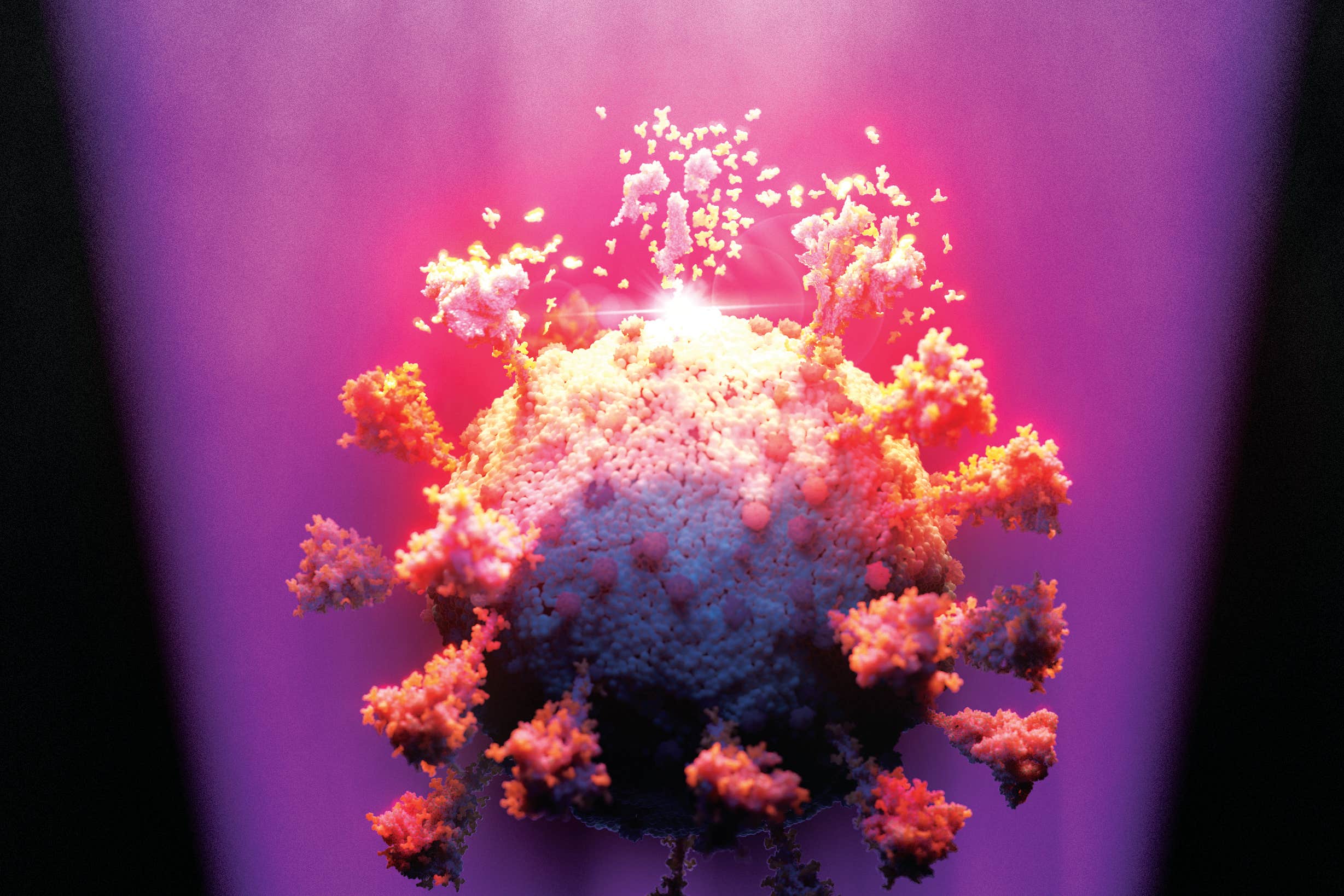Scientists discover how UV light degrades Covid-19 particles
UV laser light can target the genetic core of the virus as well as the proteinous spikes sticking out, experts found.

Your support helps us to tell the story
From reproductive rights to climate change to Big Tech, The Independent is on the ground when the story is developing. Whether it's investigating the financials of Elon Musk's pro-Trump PAC or producing our latest documentary, 'The A Word', which shines a light on the American women fighting for reproductive rights, we know how important it is to parse out the facts from the messaging.
At such a critical moment in US history, we need reporters on the ground. Your donation allows us to keep sending journalists to speak to both sides of the story.
The Independent is trusted by Americans across the entire political spectrum. And unlike many other quality news outlets, we choose not to lock Americans out of our reporting and analysis with paywalls. We believe quality journalism should be available to everyone, paid for by those who can afford it.
Your support makes all the difference.Scientists have discovered how to “deactivate” infectious coronavirus particles such as Covid-19 using ultraviolet (UV) light, which could help develop methods to disinfect public spaces.
Researchers from the University of Southampton investigated how UV laser light can target the genetic core of the virus as well as the proteinous spikes sticking out, both of which are necessary for infection.
A university spokesman said: “By using a specialised ultraviolet laser at two different wavelengths the scientists were able to determine how each viral component degraded under the bright light.
“They found the genomic material was highly sensitive to degradation and protein spikes lost their ability to bind to human cells.”
Professor Sumeet Mahajan, who led the study published in the journal ACS Photonics, said that the use of UV light to decontaminate could be useful where conventional liquid-based deactivation methods were not suitable.
He added that Sars-CoV-2, which caused Covid-19, had amongst the largest of genomes for RNA viruses, making it especially sensitive to genomic damage.
Prof Mahajan said: “Light deactivation of airborne viruses offers a versatile tool for disinfection of our public spaces and sensitive equipment that may otherwise prove difficult to decontaminate with conventional methods.
“Now we understand the differential sensitivity of molecular components in viruses to light deactivation this opens up the possibility of a finely tuned disinfection technology.”